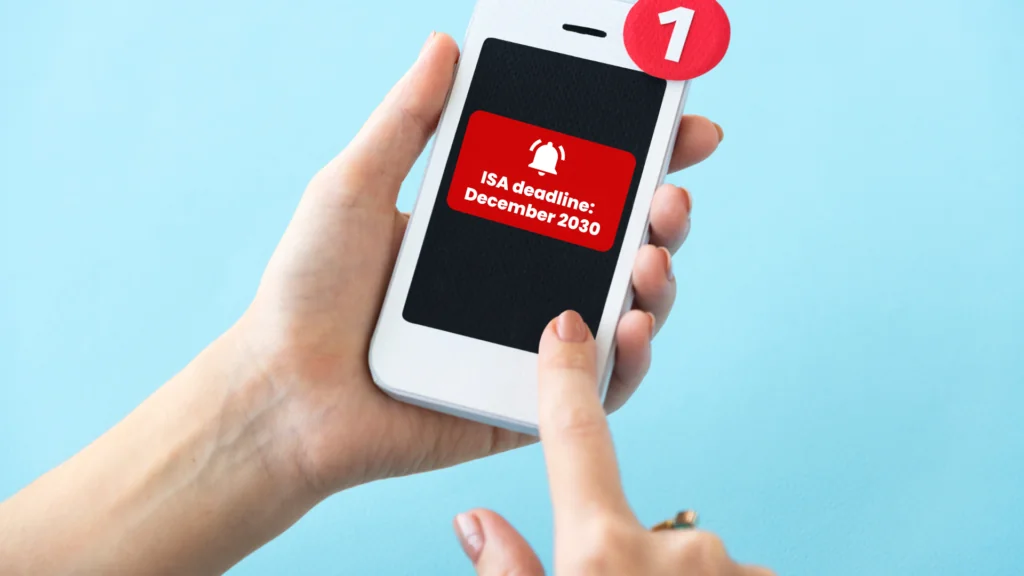- What is a Lifetime ISA For?
- Who Can Open a LISA?
- Can You Open a Lifetime ISA If I Live Abroad?
- Things To Consider Before You Apply for a Lifetime ISA
- How Does the Government Bonus Work?
- How To Open a Lifetime ISA?
- Which Banks Offer Lifetime ISA?
- When Can You Withdraw a Lifetime ISA?
- What to Know About Using Your Lifetime ISA for Your First Home
- Transferring Your Lifetime ISA
- Lifetime ISA vs. Help to Buy ISA: Whatâs the Difference?
- Is a Lifetime ISA Right For You?
- Key Takeaways
- The Bottom Line
Lifetime ISAs Explained: Save for Home and Retirement

You’re smart with your money and want every bit of it working towards the big goals—like buying your first home and setting up a nice cushion for retirement.
You’ve heard about the Lifetime ISA, with its tempting 25% government bonus, and you’re wondering: could this be the savings tool to help with both?
Our article breaks down exactly how a Lifetime ISA works for both goals.
You’ll get the details on contribution limits, how the bonus works, and what it all means for your savings.
With this guide, you’ll see if a LISA could be the right step towards your dream home and a solid retirement plan.
What is a Lifetime ISA For?
A Lifetime ISA (or LISA for short) is a type of Individual Savings Account designed specifically to help you save either for your first home or for later life.
The government rewards you with a 25% bonus on your savings, which means for every £1,000 you put in, they add £250.
You can save up to £4,000 each year, and that means a potential £1,000 yearly bonus.
It’s the government’s way of giving you a little help along the way.
Who Can Open a LISA?
If you are:
- between the ages of 18 and 39
- a UK resident (or a crown servant, their spouse, or civil partner)
- planning to save for your first home or for retirement
Then you’re eligible to open a Lifetime ISA. It’s a straightforward process, and you can start with as little as £1, which will get the clock ticking towards future savings milestones.
Can You Open a Lifetime ISA If I Live Abroad?
Here’s where it gets a bit tricky: you can only open and keep contributing to a Lifetime ISA if you’re a UK resident.
If you’re abroad temporarily—say, working or travelling for a couple of years—you’re generally okay as long as you’re still classed as a UK resident.
However, if you officially move abroad, you won’t be able to add new funds to your LISA, though it will still remain open, and any existing savings will continue to grow.
One exception is for crown servants (such as those working in the diplomatic service) and their spouses or civil partners. They can still contribute while abroad.
For the rest of us, it’s best to plan ahead if you’re considering moving overseas.
For those planning to move abroad, it’s important to understand what happens to your LISA.
If you become a non-resident, while your LISA remains open, you won’t be able to continue contributing, which might impact your overall savings plan.
Understanding these implications helps you make informed choices before relocating.
Things To Consider Before You Apply for a Lifetime ISA
Before jumping in, there are a few important things to know about Lifetime ISAs to make sure they’re the right fit for you.
How Long You Can Contribute
You can start putting money into a Lifetime ISA at 18 and keep adding to it until you hit the big 50.
Once you turned 50, you can no longer add money to your Lifetime ISA.
But don’t worry, your savings can stay invested, and continue to grow until you’re ready to withdraw them.
Rules for Dipping Into Your Savings
With a Lifetime ISA, it’s best to have a clear goal in mind: buying your first home or saving for later in life.
If buying a home is on the cards, there’s a little rule to remember: your LISA must be open for at least 12 months before you can use it for a house deposit.
So, if homeownership is in your sights, it’s wise to open an account early—even if you start small with just £1.
If it’s for retirement, you’ll need to wait until you’re 60 for a penalty-free withdrawal, so it’s really about setting yourself up for the long haul. (We’ll get to the rules for taking cash out later.)
The Early Exit Penalty
Here’s the thing—if you want to take money out before you’re 60 and it’s not for your first home, there’s a 25% penalty.
That means you lose your bonus and a bit of your own money. So, if you think you might need the funds sooner for something else, it’s good to know the trade-offs.
Maxing Out the Government Bonus
The Lifetime ISA comes with a pretty appealing perk: a government bonus of up to £33,000 over your lifetime!
You’d get there by saving £4,000 a year for around 33 years, so if you’re committed to this long-term saving, the bonus alone is a huge win.
Just keep in mind that once you hit this cap, extra contributions won’t come with any bonus.
But even without the bonus, your savings can still keep growing.
Choosing Your Style: Cash or Stocks & Shares?
You’ve got two main choices with a Lifetime ISA: cash or stocks & shares. A cash LISA is like a trusty piggy bank, earning steady interest.
A stocks & shares LISA, on the other hand, brings a bit more excitement, with the potential for bigger returns (and a few more ups and downs).
If you’re feeling adventurous and don’t mind some risk, stocks & shares could be the way to go. Otherwise, cash might be your cup of tea for a steadier ride.
Keeping an Eye on Your Goals
Since there are a few rules and age limits with a LISA, it’s good to keep your goals in mind.
Whether you’re aiming for your first home, setting up a retirement fund, or maybe both, a Lifetime ISA works best when you’ve got a clear plan in place.
Take a moment to think about how it fits into your overall finances, so you can make the most of its perks.
How Does the Government Bonus Work?
As mentioned, the government bonus is what makes the Lifetime ISA so attractive.
Each year, the government adds 25% to whatever you contribute, up to a maximum of £4,000.
This means you could receive up to £1,000 in bonus money each year.
The bonus is paid monthly, usually taking between 4 to 9 weeks to arrive after you’ve made a contribution.
And here’s the good part: once the bonus is in your account, it starts earning interest just like the rest of your savings.
Here’s a simple chart to show how different contributions can grow over time with the government bonus:
| Yearly Contribution | Government Bonus (25%) | Total Contributions Over 10 Years | Total Bonuses Over 10 Years | Total Savings After 10 Years (Excluding Interest) |
|---|---|---|---|---|
| £1,000 | £250 | £10,000 | £2,500 | £12,500 |
| £2,000 | £500 | £20,000 | £5,000 | £25,000 |
| £4,000 (Max) | £1,000 | £40,000 | £10,000 | £50,000 |
This shows how different savings amounts each year add up over time, with the bonus giving a helpful boost to your total.
How To Open a Lifetime ISA?
If you’re set on a Lifetime ISA, here’s how to get started.
First, choose a provider that offers the type you want—either a cash LISA for steady interest or a stocks and shares LISA if you’re after investment growth.
Most providers make it simple to apply online, but if you’d rather speak to someone, you can usually apply over the phone or in person.
Once your account is open, you’re ready to start saving and enjoy that 25% government bonus on what you put in. It’s that easy! 😉
Which Banks Offer Lifetime ISA?
Now, not all banks offer Lifetime ISAs, so it’s worth doing a bit of a search to see which ones have the best offers.
Some of the high street banks, like Skipton Building Society and Newcastle Building Society, have been known to offer cash lifetime ISAs.
You might also find some good deals from digital banks and investment platforms like Hargreaves Lansdown or Nutmeg.
It’s always a good idea to shop around for the best interest rates and any additional perks.
It’s helpful to note which banks offer cash LISAs versus stocks and shares LISAs, as different providers may cater to different needs.
Some providers may offer better rates or features that suit a particular savings goal—doing a bit of research here could pay off.
When Can You Withdraw a Lifetime ISA?
The good news is that there are a few scenarios where you can withdraw from your Lifetime ISA without any penalties.
These include:
- Buying Your First Home. After having your LISA open for at least 12 months, you can use the money to buy a residential property worth up to £450,000. You must use a solicitor or conveyancer to handle the funds directly—so no sneaking the money out for a quick holiday!
- Turning 60. Once you reach 60, you can take out the money, including the government bonus, with no penalties. Whether it’s to enjoy retirement, go on that dream cruise, or simply have a bit of extra security, it’s yours to use as you wish.
- Terminal Illness. If you are diagnosed with less than 12 months to live, you can withdraw all the funds without paying a penalty.
If you withdraw for any other reason, you will face that 25% penalty we mentioned earlier, which means you could end up getting back less than you initially saved.
To help understand the impact, here’s a simple breakdown:
Suppose you contribute £1,000 to your LISA, and the government adds a £250 bonus, giving you a total of £1,250.
If you then decide to withdraw this amount for an unapproved reason, a 25% penalty would apply to the total, which means you would pay £312.50 in penalties.
You’d be left with £937.50, effectively losing £62.50 of your initial contribution. This is why it’s crucial to plan carefully before deciding to withdraw.
What to Know About Using Your Lifetime ISA for Your First Home
If you’re ready to put your Lifetime ISA (LISA) savings toward buying your first home, here are the key things to keep in mind:
- The property you buy must cost £450,000 or less—so double-check prices if you’re buying in higher-cost areas.
- You’ll need to wait at least a year from your first LISA deposit before you can use it toward a home. If you’re looking to buy soon, consider opening the account early, even with a small amount.
- Your LISA provider won’t send you the money directly; it goes straight to a conveyancer or solicitor handling the purchase. This keeps everything secure and straightforward.
- You’ll need to be using a standard mortgage to qualify. Private loans from family or close relations, even through in-laws, won’t count.
- If you have both a Help to Buy ISA and a LISA, you’ll need to choose which bonus to use. You can only use the government bonus from one of them for your first home. The other account’s savings can still be used, just without the bonus.
Buying with a Partner?
If you and your partner are both first-time buyers with LISAs, you can each use your own LISA savings and government bonuses towards the same property, which means double the bonus.
Just a heads-up: there’s no such thing as a joint LISA account, so you’ll each need your own.
And remember, the £450,000 price cap still applies to the property as a whole, not per person.
Transferring Your Lifetime ISA
One great feature of the Lifetime ISA is that you’re not locked into one provider forever.
You can transfer your LISA to another provider at any time, which is helpful if you find a better interest rate or want to switch from a cash LISA to a stocks and shares LISA (or vice versa).
Just remember, if you’re transferring funds from another ISA into your LISA, only £4,000 can be transferred in each tax year.
Additionally, you can hold more than one Lifetime ISA, provided each one is opened in a different tax year, though you can only contribute to one LISA per tax year.
This flexibility allows you to move your savings to suit your needs and make the most of available rates.
It’s important to monitor interest rates and fees regularly.
To help decide if it’s time to transfer, here’s a quick checklist:
- Better Interest Rates Available. If other providers are offering much better rates, it’s worth considering a switch to boost your savings.
- High Fees. If your current provider ups their fees or you find a provider with lower costs, a transfer could save you money.
- Change in Investment Strategy. Want to switch from a cash LISA to a stocks and shares LISA (or vice versa)? Transferring can let you adjust your savings strategy.
- Getting Close to a Big Milestone. If you’re gearing up to buy a home or hit another savings goal, make sure your funds are in an account that’s set up to maximise growth.
This checklist can help make the process of transferring your Lifetime ISA more actionable and ensure you’re getting the best value for your savings.
Lifetime ISA vs. Help to Buy ISA: What’s the Difference?
If you’re saving for your first home, both the Lifetime ISA (LISA) and Help to Buy ISA have tempting government bonuses to give your savings a nice little boost.
But which one’s better for you? Here’s an easy comparison to help you choose:
- Saving and Bonus Limits. With a LISA, you can save up to £4,000 each year and get a generous 25% bonus from the government, which works out to £1,000 annually. The Help to Buy ISA, meanwhile, offers a maximum bonus of £3,000, but the yearly savings cap is lower at £2,400—ideal if you’re working with a smaller budget.
- Property Price Cap. The LISA has a straightforward property price limit of £450,000, no matter where you’re buying in the UK. The Help to Buy ISA also has a £450,000 limit—but only in London. Outside of London, it’s capped at £250,000, which could make it tricky if you’re eyeing a pricier property in other areas.
- Withdrawing Your Money. One of the nice things about the Help to Buy ISA is that you can withdraw your money whenever you like without a fee—though you’ll only get the bonus if it’s for a home purchase. The LISA, on the other hand, has a 25% penalty if you withdraw before age 60 and it’s not for your first home. So, if your plans might change, the Help to Buy ISA could be a bit more flexible.
- What You Can Use It For. A LISA isn’t just for home buying—it can double up as a retirement savings account too, making it a solid long-term option even after you’ve bought your home. The Help to Buy ISA is purely for getting you into that first home, with no retirement perks attached.
- Bonus Eligibility Timeline. With the LISA, there’s a little waiting game: it has to be open for 12 months before you can use the bonus towards a home. In contrast, the Help to Buy ISA has no minimum waiting period, which makes it more convenient if you’re hoping to buy soon.
- Transferring Between Accounts. If you’ve already got a Help to Buy ISA, you can transfer it to a LISA, but you can only move up to £4,000 each year. So, if you’ve saved more, it could take a few tax years to fully shift everything over.
The Lifetime ISA gives you a bigger bonus and the option to keep it as a retirement fund, but it’s less flexible if you need to dip in for other reasons.
The Help to Buy ISA is simpler, and while it’s a bit limited, it lets you access your money whenever you like.
Your choice really comes down to your goals and how much flexibility you need with your savings.
Is a Lifetime ISA Right For You?
A Lifetime ISA (LISA) offers some big benefits, but it has its own set of limitations too. Here’s a simple look at the pros and cons to help you decide if it fits your savings goals.
The Benefits of a Lifetime ISA
- You get a 25% government bonus on your savings, up to £1,000 each year.
- You can use it to save for both your first home and your retirement.
- Any interest or investment growth within the account is tax-free, so your savings grow faster.
- Both your contributions and the government bonuses benefit from compound growth.
- The property price cap is set at £450,000 across the UK, making it ideal if you’re buying in a pricier area.
- Even after age 50, your account stays open and continues to grow, even if you’re no longer adding to it.
The Drawbacks of a Lifetime ISA
Of course, a Lifetime ISA isn’t perfect, and there are a few things to keep in mind before committing:
- If you withdraw money early for non-qualifying reasons, there’s a 25% penalty, which means losing some of your own savings.
- You need to be under 40 to open a Lifetime ISA, so it’s not an option if you’re older.
- There’s a £4,000 annual contribution cap, which might feel limiting if you’re looking to save more.
- Your account must be open for at least 12 months before you can use it towards a home purchase.
- Contributions count towards your £20,000 annual ISA allowance, reducing what you can put in other ISAs.
Key Takeaways
- A Lifetime ISA (LISA) helps you save for your first home or retirement, with a 25% government bonus on contributions, up to £1,000 per year if you save the £4,000 yearly maximum.
- You’re eligible if you’re a UK resident, aged 18-39, and saving for a first home or retirement. Temporary stays abroad are allowed, but long-term non-residents cannot contribute.
- You can save until age 50, with contributions capped at £4,000 per year. After that, your LISA stays open and continues to grow, but no further deposits are allowed.
- Withdrawals for home purchases require a 12-month account minimum, with a property price cap of £450,000. For retirement, you can access funds penalty-free at 60.
- LISAs offer two types: cash for steady interest and stocks & shares for potential growth. You can also transfer providers if you find better rates.
- The LISA offers a maximum £33,000 government bonus over your lifetime, with the added benefit of tax-free interest or investment growth on savings and bonuses.
- Compared to the Help to Buy ISA, a LISA offers higher limits and can also serve as a retirement fund, but it has stricter rules for withdrawals.
The Bottom Line
A Lifetime ISA (LISA) can be a great way to save for your first home or retirement. The government offers a generous bonus to help you boost your savings.
But keep in mind, there are a few rules—age limits, property price caps, and withdrawal terms—so it’s important to check that it fits your goals.
If you’re under 40 and starting your savings journey, a LISA is a smart choice. You can open one with as little as £1 and qualify for the bonus later.
Just remember, your money could be locked up for a while, so make sure you’re comfortable with the terms.
When you’re ready to buy a home, a good mortgage broker can simplify the process. They can find the best mortgage deals for your situation, guide you through the application, and help you maximise your LISA benefits.
Need help finding a trusted mortgage broker? Get in touch with us. We’ll connect you with an expert to guide you through the mortgage process and help you buy your first home.
Get Matched With Your Dream Mortgage Advisor...

Frequently asked questions
What happens if my property exceeds £450,000?
If your property exceeds the £450,000 limit, you won’t be able to use your Lifetime ISA funds for the purchase without incurring the 25% withdrawal penalty. It’s important to ensure the property you’re buying meets this price cap to avoid unexpected penalties.
Can I use my LISA for buying a second property?
No, the Lifetime ISA can only be used for purchasing your first home. If you have previously owned a property, you are not eligible to use LISA funds for buying another property.
Can I combine a Lifetime ISA with other ISAs?
Yes, you can combine a Lifetime ISA (LISA) with other types of ISAs. The total amount you can save across all your ISAs in a tax year is £20,000, and this includes any contributions made to a Lifetime ISA.
So, if you contribute £4,000 to your LISA, you can still save up to £16,000 across other ISAs like a Cash ISA, Stocks and Shares ISA, or Innovative Finance ISA within the same tax year.




